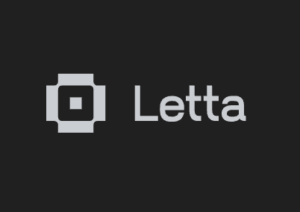
Letta Emerges from Stealth with $10M to Build AI Agents with Advanced Memory
SAN FRANCISCO, Sept. 26, 2024 — Letta, a new generative AI startup spun out of UC Berkeley’s AI research lab, emerged from stealth this week with a $10 million seed round led by Felicis with participation from Sunflower Capital and Essence VC.
 Letta’s focus is unlocking the next generation of AI through advanced memory systems and is led by the same research team that created the popular MemGPT open source project. Before MemGPT, the default information architecture of most AI agents was stateless, meaning that AI agents weren’t able to retain their memory (state) between user sessions.
Letta’s focus is unlocking the next generation of AI through advanced memory systems and is led by the same research team that created the popular MemGPT open source project. Before MemGPT, the default information architecture of most AI agents was stateless, meaning that AI agents weren’t able to retain their memory (state) between user sessions.
The MemGPT research paper first introduced the concept of self-editing memory for LLMs – enabling an LLM to update its own memory so that it can learn over time as it interacts with human users. If an AI agent can add relevant context to its understanding of the scenario and person it interacts with, keeping track of changes, updates, and new information over time, the agent becomes more useful and practically applicable in real world scenarios. Letta believes that truly useful AI can only be built with stateful APIs.
Letta co-founders Charles Packer and Sarah Wooders met during their PhD research at the Sky Lab at UC Berkeley under the same advisors, Joseph Gonzalez and Ion Stoica. Both professors are also joining Letta’s founding team in an advisory capacity.
“We are just starting to understand how to build compound AI systems around large foundation models,” said Stoica, a professor at UC Berkeley and one of the co-founders of Databricks. “Charles and Sarah’s PhD research at Berkeley laid the groundwork for how to build these stateful AI systems, and I’m excited to see them continue this research agenda at Letta.”
“The most powerful characteristics of a useful AI agent – personalization, self-improvement, tool use, reasoning and planning – are all fundamentally memory management problems,” said Packer, Letta’s CEO. “The key challenge with agents is understanding how to construct the context window of the LLM, which forms the AI’s ‘memory’, and developing an agentic loop around the LLM to manage the context window over time. Similar to how a microprocessor or CPU is just one part of a computer, LLMs are just one part of larger AI systems. At Letta, our vision is to build the complete AI computer around the LLM.”
Letta plans to use the funding to continue building a new hosted product, Letta Cloud, for developers to build and deploy agents with advanced memory systems. Letta Cloud includes a hosted agent service, which allows developers to deploy and run stateful agents in the cloud, accessible via REST APIs. Letta Cloud is “model agnostic,” meaning that developers can easily swap model endpoints and bring their agents to any LLM provider (even enabling a single agent to run on multiple models).
Additionally, Letta Cloud provides an “Agent Development Environment” (or “ADE”) for agent builders to develop and debug agents by directly viewing and editing both the agent’s prompts and its memory. This is enabled by Letta’s approach to “white-box memory,” which makes the exact prompts and memories being passed to the LLM on each reasoning step transparent to the developer, unlike many existing agent frameworks.
“AI memory shouldn’t be a black box. We want to make sure developers have full visibility into the memory and state of their agents, and have full control over what LLMs they want to use,” said Wooders, Letta’s CTO. “Developers shouldn’t have to choose between performance and model lock-in.”
Agents have attracted tremendous interest from startup founders and investors alike – 42 of the 260 companies (16%) in YC’s W24 batch explicitly mention “agent” in their company description. However, agents today face numerous issues in production – they are unreliable, hard to control, degrade over time (also known as “derailment”), and are generally unable to perform complex tasks involving executing many actions over an extended period of time. Letta believes these problems all stem from lack of proper memory management.
The company is releasing its new Agent Developer Environment and API platform for building and deploying AI agents for free today, and is onboarding early developers to the beta of its Letta Cloud hosted platform. Developers can install Letta’s open source software and sign up for the hosted beta at letta.com.
About Letta
Letta is an AI startup unlocking the next generation of AI through advanced memory systems, founded by the researchers behind the MemGPT project at UC Berkeley. Letta’s team believes that programming agents starts with programming memory. And they’re putting their deep expertise in research, systems, and AI behind building the stateful APIs of the future, in a way that is accessible to any developer using any AI model they want.
Source: Letta



























